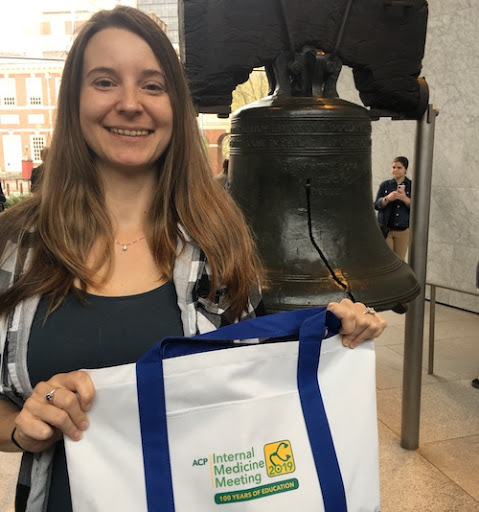 Hello from the 2019 American College of Physicians (ACP) Conference in Philadelphia! One of the many reasons I enjoy being a concierge physician at The Village Doctor is our emphasis on staying current on developments in internal medicine. As stated on the ACP website, “The ACP Internal Medicine Meeting is regarded as the premier scientific meeting in internal medicine. Each year, the American College of Physicians brings together physicians from around the globe to experience the most comprehensive live educational event in internal medicine.” Of the many interesting and timely topics reviewed this year, one of many that stuck out for me was the benefit (and ease) of penicillin testing for most of those who carry a history of penicillin allergy in their medical history.
Hello from the 2019 American College of Physicians (ACP) Conference in Philadelphia! One of the many reasons I enjoy being a concierge physician at The Village Doctor is our emphasis on staying current on developments in internal medicine. As stated on the ACP website, “The ACP Internal Medicine Meeting is regarded as the premier scientific meeting in internal medicine. Each year, the American College of Physicians brings together physicians from around the globe to experience the most comprehensive live educational event in internal medicine.” Of the many interesting and timely topics reviewed this year, one of many that stuck out for me was the benefit (and ease) of penicillin testing for most of those who carry a history of penicillin allergy in their medical history.
Approximately 10% of the US population carries a listed allergy to penicillin. It is estimated that up to 90% of these patients don’t truly have an allergy. While many of these instances may not have been true allergies, many other patients “lose” their allergy over time, with only about 20% of patients retaining the allergy 10 years after the initial reaction, including patients reporting anaphylaxis.
Penicillins are closely related to another class of antibiotics called cephalosporins (e.g. “Keflex”), so true penicillin allergies wipe out the option of two very commonly used antibiotic classes. In a 2012 study by Kaiser Permanente, 11% of over 51,000 patients included in the study reported a history of penicillin allergy. These patients were more likely to be given alternative medications with worse side effect profiles, more likely to be hospitalized (accounting for over 30,000 extra hospital days), more likely to have gastrointestinal infections like c. difficile colitis, and more likely to have resistant infections such as methicillin-resistant staph aureus (MRSA) and vancomycin-resistant enterococcus (VRE). A study published this year from the University of Pennsylvania had similar findings, with patients reporting penicillin/cephalosporin allergy having higher 30-day mortality rate, readmission rate, c. difficile colitis rate and duration and number of classes of antibiotics used.
Studies show that penicillin allergy testing with a simple skin test (blood tests aren’t helpful for this kind of testing) can be extremely helpful for patients. In a Kaiser study from 2015, only 4 of 308 patients with documented penicillin allergy had a positive penicillin skin and challenge test. Taking penicillin off their allergy list, these patients had significantly fewer outpatient visits and hospital admission days than patients with a penicillin allergy listed in their chart.
If you have a documented allergy to penicillin or any other class of antibiotics and it has been more than 5 years since the allergy, let’s discuss whether allergy testing may be helpful for you.
Dr. Jennifer Abrams


